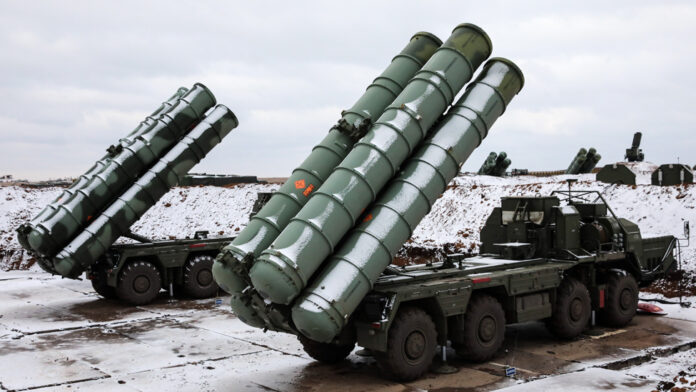India and Russia discussed the supply of S-400 missile systems, upgrades to Su-30 MKI fighter jets, and the procurement of critical military hardware, the Indian government said on Friday.
Russian Defense Minister Andrey Belousov and his Indian counterpart Rajnath Singh were in eastern China’s Qingdao city on Thursday to attend the annual meeting of the Shanghai Cooperation Organisation (SCO) defence chiefs.
“S-400 Triumf surface-to-air defense system , Su-30 MKI upgrades, and procurement of critical military hardware in expeditious timeframes were some of the key takeaways of the meeting,” said the statement by the Indian Defense Ministry.
India is a key purchaser of Russian defense equipment and has acquired the S-400 air defense system from Moscow following a $5.43 billion agreement signed in 2018. This deal included five squadrons of the advanced air-to-surface missile system.
Russia began delivering the first three squadrons in December 2021, but the remaining two, which consist of 118 missiles each, are still pending delivery.
India has already deployed the first three S-400 squadrons along its borders with Pakistan and China. Moscow has assured New Delhi that the remaining two squadrons will be delivered by 2027.
India has also been using Russian-made Su-30 jets since their procurement in 1996.
India launched the ‘Operation Sindoor’ against Pakistan last month. Islamabad retaliated to Indian attacks under Operation Bunyan-un-Marsoos, or “Iron Wall,” in hostilities triggered by the April 22 Pahalgam attack by unidentified gunmen in the Indian-occupied Jammu and Kashmir.
Singh also held discussions with Chinese counterpart Adm. Dong Jun, focusing on the “permanent solution” to border demarcation issues, stressing the need for revitalizing the established mechanisms. He acknowledged efforts to restore normalcy in bilateral relations but emphasized the importance of addressing complex issues through a structured approach and consistent engagement to de-escalate tensions.
Singh called for bridging the trust gap created after the 2020 border standoff by taking tangible actions on the ground.




